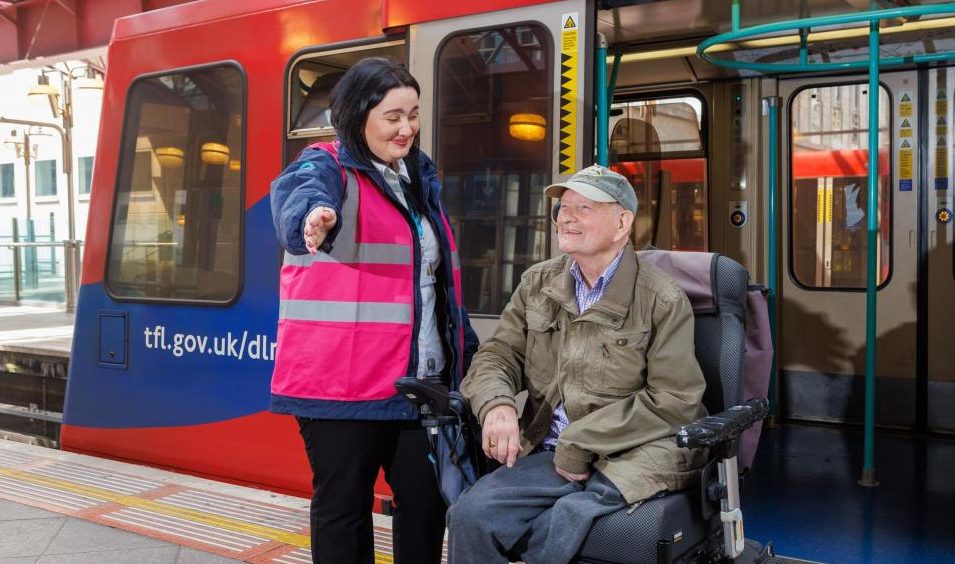
Photo: TfL
Transport for London launches accessibility trial on Docklands railway
17 May 2024
by Christopher Carey
Transport for London (TfL) has launched a six-month trial to help make journeys on its Docklands Light Railway (DLR) more accessible.
The Access DLR trial, launched in partnership with KeolisAmey Docklands, aims to help passengers who might otherwise encounter barriers when travelling.
The trial allows customers to pre-book an available timeslot for travel support at least two hours before their journey, and is open to anyone aged 18 and over who requires assistance to travel.
“Making London more accessible and inclusive is a priority for TfL,” said Trish Ashton, TfL’s Director of Rail and Sponsored Services.
“DLR stations have been step-free since it was introduced but we know that only addresses one element of accessibility. Access DLR, along with the new DLR trains, will make the DLR network more widely accessible to the growing community around east and southeast London.
“We hope that more Londoners will feel comfortable using DLR services with these improvements in place.”
How it works
Passengers will be able to pre-book an available timeslot for assistance with their journeys online or by phone at least two hours before their journey for travel seven days a week between 7am and 7pm.
Short-notice requests can also be made by phone for travel assistance less than two hours before a trip but these will be subject to staff availability at the time of travel.
The trial intends to cover a wide range of needs including mobility, visual impairments and mental health. Users will not be asked for any proof of disability to use the service.
Feedback will be gathered throughout the six months on how the service works, hours of operation and potential demand for the service beyond the trial.
Equity in motion
TfL recently launched its Equity in Motion plan, which includes more than 80 actions to make transport in London more accessible and more inclusive.
The plan’s commitments include increasing the proportion of step-free Tube stations from a third to half; introducing mini ramps to cover the gap between trains and platforms; launching an innovation challenge aimed at improving travel for disabled people; adding more dedicated spaces for wheelchair users and pushchairs; and a review of TfL’s approach to translating communications into different languages, including British Sign Language.
Image: TfL












